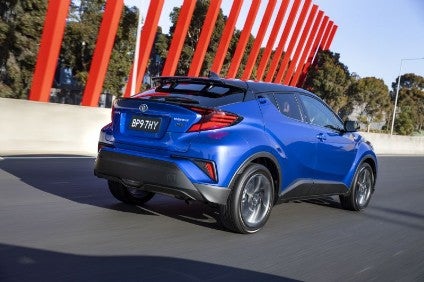
Toyota Motor will procure some of its electrical steel sheet from China Baowu Steel Group, China’s largest steel supplier, in a move that could see Japanese steel makers having to compete with the Chinese suppliers on price as well as quality, the Nikkei reported.
The report noted steel sheet is a high performance product and crucial electric vehicle material, and its production requires sophisticated technology.

Discover B2B Marketing That Performs
Combine business intelligence and editorial excellence to reach engaged professionals across 36 leading media platforms.
Because high quality is critical, Toyota has sourced it mainly from Japan’s leading steel makers.
The Nikkei said the deal was seen as a sign Chinese steel makers, reliable suppliers of large quantities of general purpose product, were catching up with Japanese rivals on quality.
Toyota has not only approved the quality of China Baowu’s steel sheet for use in hybrid and electric vehicles made in Japan, it is already taking delivery of the product, the report added.
The Nikkei said this was believed to be the first instance in which a major Japanese automaker has used Chinese made electrical steel sheet in passenger cars built in Japan.
Electrical steel sheet is magnetised through a special process. Its production requires sophisticated technologies, such as to remove impurities. The product goes into core components of electric vehicles, including motors, the report said.
The material is essential if motors are to operate efficiently. As such, it directly affects the mileage a vehicle can achieve. As high quality is key to the product, only a handful of steel makers, including Nippon Steel, have been able to supply it to companies like Toyota.
China Baowu will supply a limited amount of the steel to Toyota, but a Toyota executive told the Nikkei the Chinese product “is as good as its Japanese-made counterparts. … We’re going to diversify the material’s suppliers, as use of electric vehicles is expected to grow.”
China Baowu has also started supplying its products to Tesla, according to Japan Iron and Steel Federation’s research cited in the report.
The Nikkei said the deal showed the steel industry was entering a new phase. China, which produces 60% of the world’s crude steel, had primarily focused on lowgrade steel used in construction materials and other general purpose products. Its entry into the high end side of production meant that it was encroaching on one of the few big sources of revenue left for Japanese players.
China Baowu, which was formed when Baosteel Group absorbed smaller peer Wuhan Iron and Steel in 2016, intends to capitalise on rising demand for electrical steel sheet.
According to the World Steel Association, Baowu in 2019 was the second largest producer of crude steel, after ArcelorMittal Europe, the Nikkei said.
The company holds a 60% share in China’s electrical steel sheet market and is moving forward with plans to invest over CNY2bn (US$285.7m) in its Shanghai factory to further increase capacity for that product.
China has been consolidating its steel industry, creating bigger players that can eliminate overlapping costs and divert more resources to research and investment.
In 2019, Jiangsu Shagang Group, China’s third biggest steel supplier, also started rolling out initiatives to increase capacity.
Japanese counterparts are becoming more vigilant amid the rise of Chinese steel companies supplying high value added products to the automobile and other key industries, the Nikkei report noted.






